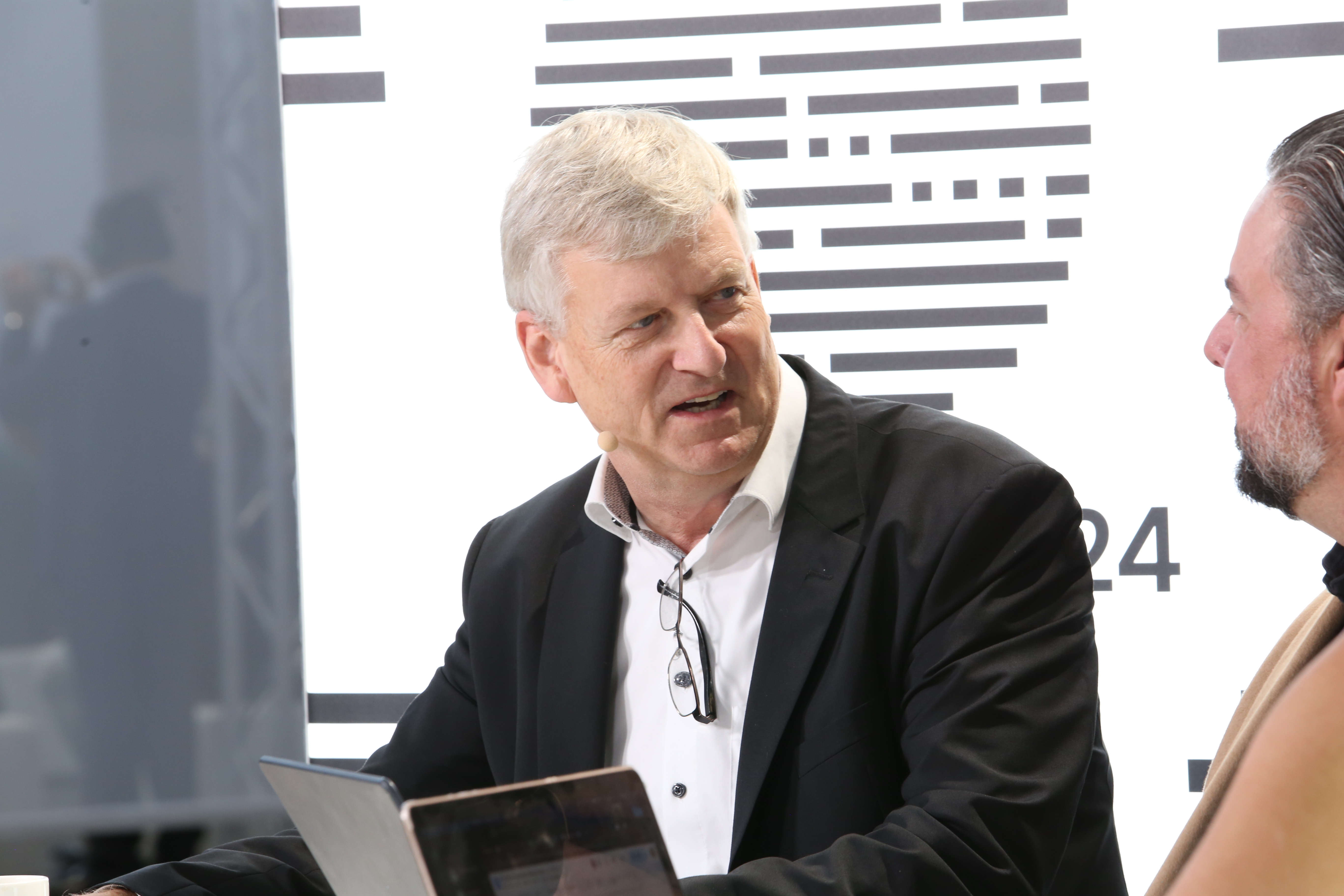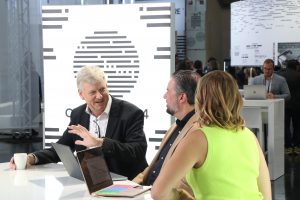 AI
AI
 AI
AI
 AI
AI
Most businesses and institutions struggle with bottlenecks and inefficient systems, but according to Celonis SE, the solution is process mining.
Process mining is a way of extracting valuable insights by observing an organization’s operations. Celonis’ platform is particularly useful for users trying to prepare their data for artificial intelligence and machine learning models.

Wil van der Aalst (left) of Celonis talks about the importance of data management.
“What I found out is that most of the organizations that would buy work for management technology would not use it at all,” said Wil van der Aalst (pictured), chief scientist at Celonis and professor at RWTH Aachen University. “So, they would buy it and not use it because the real processes were more complicated than when people start to model. That gave me the idea to start working on process mining, where you start from the data and you try to [find] out what’s really happening. Because when people say what they are doing, they are very unreliable. “
Van der Aalst spoke with theCUBE Research’s Savannah Peterson and Rob Strechay at Celosphere 24, during an exclusive broadcast on theCUBE, SiliconANGLE Media’s livestreaming studio. They discussed the power of process mining and why more companies need to invest in it. (* Disclosure below.)
The biggest bottleneck within an organization is usually its data, according to Van der Aalst. If companies want to implement AI, they need to get their data in order first.
“There is no organization that doesn’t have process related problems, and it’s often very unclear why these problems are there,” he said. “At the same time, there is data and people do not know how to use it. I think organizations are still pretty naïve that they think they can ask ChatGPT what their problem is. You really need to do the work, and process mining is like the enabler of being able to apply these types of techniques.”
The applications for process mining are wide ranging, with analyzing airplane delays and managing traffic violations as a couple examples. Sometimes, upper management can be resistant to changing old practices, but Van der Aalst believes that the world will eventually come around to a more efficient way of doing things.
“If you do process mining, you first discover the processes,” he said. “You can see where your problems are. Then for every individual problem, you can kind of analyze it further and generate this AI and the data mining problems without being able to see, I have a bottleneck here. People are deviating in this part of the process. If you don’t know that, you cannot apply agents over there in any meaningful way.”
Here’s the complete video interview, part of SiliconANGLE’s and theCUBE Research’s coverage of Celosphere 24:
(* Disclosure: TheCUBE is a paid media partner for Celosphere 24. Neither Celonis SE, the sponsor of theCUBE’s event coverage, nor other sponsors have editorial control over content on theCUBE or SiliconANGLE.)
Support our mission to keep content open and free by engaging with theCUBE community. Join theCUBE’s Alumni Trust Network, where technology leaders connect, share intelligence and create opportunities.
Founded by tech visionaries John Furrier and Dave Vellante, SiliconANGLE Media has built a dynamic ecosystem of industry-leading digital media brands that reach 15+ million elite tech professionals. Our new proprietary theCUBE AI Video Cloud is breaking ground in audience interaction, leveraging theCUBEai.com neural network to help technology companies make data-driven decisions and stay at the forefront of industry conversations.